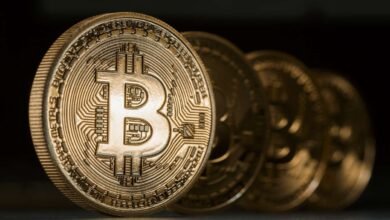
Resolving the SEC Case: Potential Outcomes and Impacts for Ripple
The legal battle between Ripple Labs and the U.S. Securities and Exchange Commission (SEC) has been one of the most significant events in the history of cryptocurrency, with far-reaching implications for the entire industry. The SEC filed a lawsuit against Ripple in December 2020, accusing the company of conducting an unregistered securities offering by selling XRP, which the SEC classifies as a security under U.S. law. The outcome of this lawsuit is crucial not only for Ripple’s future but also for how regulators, courts, and businesses will approach the regulatory landscape for cryptocurrencies and digital assets in the years to come.
In this article, we’ll examine the potential outcomes of the SEC case and the impacts these outcomes could have on Ripple, XRP, and the broader cryptocurrency market.
Background: The Ripple-SEC Lawsuit
The SEC’s lawsuit centers around whether XRP should be classified as a security under U.S. law, similar to stocks or bonds. The SEC argues that because XRP was sold by Ripple to investors for funding purposes and promises of future profits, it meets the definition of a security as per the Howey Test—a key test used to determine whether an asset is an investment contract under U.S. securities law.
Ripple, on the other hand, argues that XRP is not a security and that the SEC’s classification of the asset as such is overreaching. Ripple has consistently maintained that XRP functions as a utility token, designed to facilitate cross-border payments, and not as an investment vehicle. Ripple also asserts that it did not engage in any form of investment contract with the public when it sold XRP and, thus, should not be subject to securities regulation.
As the case has unfolded, Ripple has garnered significant public and legal support, particularly from members of the cryptocurrency community and industry advocates, who argue that the case’s outcome could set a critical precedent for how digital assets are regulated in the U.S. While the outcome of the case remains uncertain, there are several potential scenarios that could emerge, each with its own set of consequences.
1. Ripple Wins the Case: Legal Precedent and Positive Ripple Effect
Outcome
If Ripple wins the case, it will mean that XRP is not a security, and the SEC’s claims against the company would be dismissed. This outcome would essentially validate Ripple’s position that XRP is a utility token and not an investment asset subject to securities regulation.
Potential Impacts on Ripple and XRP
- XRP Price Surge and Increased Adoption
A favorable ruling for Ripple would likely result in a significant boost in XRP’s price. As a non-security, XRP would become more appealing to institutional investors and traditional financial institutions, who have largely avoided investing in XRP due to regulatory uncertainty. With the legal cloud lifted, institutional investors could feel more confident about acquiring and using XRP, which would drive increased demand for the asset.
Additionally, many exchanges that had previously suspended or delisted XRP due to the ongoing litigation might choose to relist the asset, leading to an increase in trading volume. The positive market sentiment from the case’s outcome would also likely prompt further adoption of Ripple’s technology, especially in cross-border payments and blockchain remittance services.
- Regulatory Clarity for Cryptocurrencies
A Ripple victory would not only benefit the company and XRP but could also set a significant precedent for the broader cryptocurrency market. Such an outcome could force the SEC and other regulatory bodies to adopt clearer guidelines on how digital assets should be classified, giving more clarity to cryptocurrency companies, developers, and investors.
A favorable decision could push Congress to develop more comprehensive cryptocurrency regulations, establishing clear legal frameworks for how cryptocurrencies are categorized and taxed, which could foster a healthier and more sustainable environment for the industry.
- Broader Industry Impact
The case has wider implications for other cryptocurrency projects. A favorable ruling for Ripple would encourage other projects in the cryptocurrency space to challenge SEC classifications, potentially leading to more favorable treatment of digital assets that are primarily used as utilities rather than investment vehicles.
Additionally, it could shift the SEC’s focus toward regulating fraudulent activities in the cryptocurrency space (such as pump-and-dump schemes or other manipulative behaviors) rather than regulating cryptocurrencies as securities.
2. Ripple Loses the Case: Regulatory Fallout and Industry Uncertainty
Outcome
If the court rules in favor of the SEC and declares that XRP is a security, Ripple would be required to comply with U.S. securities laws, which would likely result in significant financial penalties and operational changes. The company would need to register with the SEC, pay fines, and adhere to various compliance protocols related to securities offerings.
Ripple would likely appeal such a decision, potentially extending the litigation further. In the short term, however, this outcome would create considerable disruption for Ripple and its business operations.
Potential Impacts on Ripple and XRP
- XRP Price Decline and Exchange Delistings
A loss in the case would almost certainly result in a sharp decline in XRP’s price. The announcement of XRP being classified as a security would likely prompt several cryptocurrency exchanges to delist the asset, as they would be required to comply with U.S. securities regulations. Major exchanges like Binance, Coinbase, and Kraken could be forced to halt trading of XRP for U.S. customers, leading to lower liquidity and trading volumes.
The decline in XRP’s market price could be exacerbated by fears of further regulatory scrutiny on other digital assets that might fall under similar scrutiny. Many holders of XRP might sell off their assets in response to a negative ruling, resulting in a temporary market downturn.
- Ripple’s Business Model and Operational Adjustments
If the ruling requires Ripple to treat XRP as a security, the company would likely need to restructure its operations to comply with U.S. securities laws. Ripple would have to register its XRP sales with the SEC, and possibly pay fines for past violations. The company could also face increased legal liabilities, as it could be required to compensate individuals who purchased XRP under the assumption that it was not a security.
The company’s business model may also be impacted, as Ripple may need to pivot its focus to international markets where XRP’s regulatory status is not as uncertain. This could limit the company’s ability to engage with U.S.-based financial institutions and expand RippleNet domestically, potentially reducing the overall market share Ripple commands in the cross-border payments industry.
- Shifting Focus Toward International Markets
Despite the potential challenges Ripple could face in the U.S., the company is already expanding internationally and has built a strong presence in markets like Asia, Europe, and Latin America. A loss in the case could force Ripple to accelerate its global strategy, looking to countries with more cryptocurrency-friendly regulations for business expansion.
This shift could see Ripple strengthen its position in countries where the regulatory landscape is more favorable to blockchain technology. Ripple could focus on building partnerships with international banks and payment providers who are looking for cross-border solutions but may be hesitant to use a product that is subject to U.S. securities laws.
3. Settlement: A Middle Ground with Future Regulatory Clarity
Outcome
Another possible outcome is a settlement between Ripple and the SEC. In this scenario, both parties would agree to a compromise that avoids a lengthy trial. A settlement would likely involve Ripple paying a fine for past actions but would not necessarily require XRP to be classified as a security.
A settlement could pave the way for Ripple to continue its operations without the same level of legal uncertainty but with some concessions to comply with the SEC’s regulations.
Potential Impacts on Ripple and XRP
- Regulatory Clarity with Compliance Obligations
A settlement would likely include an agreement for Ripple to follow certain regulatory procedures in future XRP sales, such as disclosure requirements or offering XRP through registered securities. This would provide legal clarity for Ripple and potentially end the regulatory uncertainty surrounding XRP’s status.
- Minimal Impact on XRP’s Price
While a settlement could provide certainty and allow Ripple to operate more freely, there may still be a short-term impact on the price of XRP as market participants digest the news. However, the price may recover over time as the legal uncertainty around XRP is reduced.
- Industry Reaction and Ripple’s Future
A settlement could provide Ripple with a path forward, allowing the company to continue building partnerships and expanding RippleNet. The settlement might also bring about a more cooperative relationship between Ripple and the SEC, which could encourage the development of clearer, more consistent regulations for cryptocurrencies.
: The Ripple-SEC Case – A Defining Moment for the Crypto Industry
The outcome of the Ripple-SEC lawsuit will have significant consequences not just for Ripple and XRP, but for the entire cryptocurrency industry. While a favorable ruling could provide the clarity and freedom Ripple needs to accelerate its growth, a loss could create challenges in the form of regulatory compliance and market turbulence. A settlement could offer a middle ground, potentially allowing Ripple to move forward while adhering to certain regulatory requirements.
Regardless of the outcome, the Ripple-SEC case is a crucial moment in the evolution of cryptocurrency regulations in the U.S., and it will likely influence how other digital assets are treated by regulators in the years to come.



